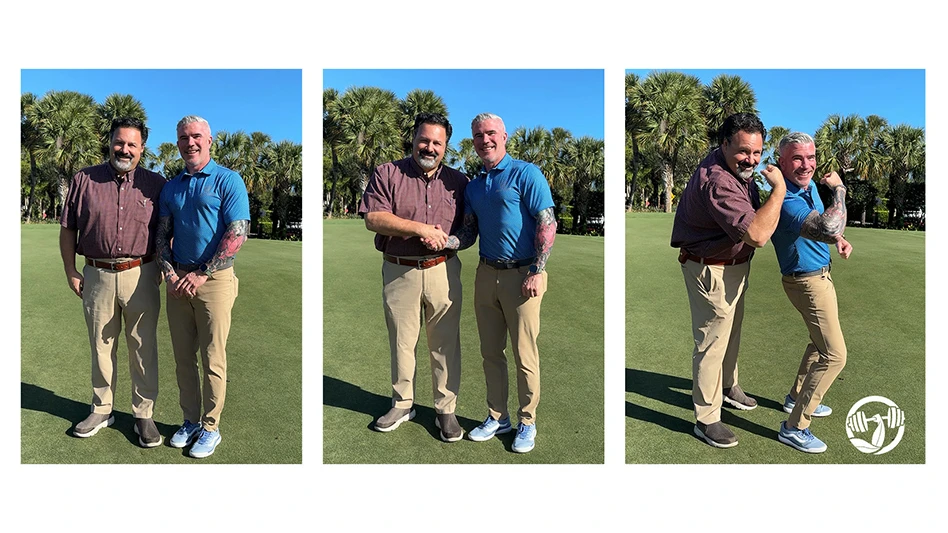In past columns, I’ve explained that marketing is important to golf course superintendents for a number of reasons. Your next job might depend on how well you market yourself to your employer. How much marketshare your golf course earns this year and the greens fees golfers are willing to pay depend largely on whether the course conditions you produce meet or exceed golfers’ expectations. Being able to hire that great new employee depends on how well you market your course, yourself as the boss and the position. Getting a raise depends on how well you market your accomplishments to the owners or the board of directors.
Marketing isn’t an element of the job description for most golf course superintendents, but like sales, it’s really a part of everyone’s job description … or it should be.
If marketing is so important, what do marketers do that other people don’t? The answer is simple, and because of that, is often missed. Superintendents who understand and effectively market themselves, their work and their course have learned not to use their own eyes and ears – they have learned to use other people’s. That’s it. The challenge is putting this principle into action.
A huge obstacle to see what others see is recognizing how much your own eyes can blind you. I’ve worked with and around many superintendents, and what an experienced superintendent sees on a course is amazing. For example, an experienced superintendent can tell how a green has been constructed and then accurately predicts many of the ongoing maintenance problems it will have.
But what does the golfer see? The average golfer sees things like approaches, sand traps, turf color and quality, and green speed. To the superintendent, green speed might not be an issue because he is already pushing conditions on that green to the limit, or it’s being maintained to the course’s specifications. Turf color also might be a temporary condition that will correct itself with an adjustment to irrigation or fertilization and a little time.
From a technical standpoint, the superintendent’s perspective is valid. From a marketing perspective, golfers’ perceptions also are valid and shouldn’t be dismissed too easily. If golfers are turned off enough about course conditions, they might choose to play another course next week.
Managing something as finicky as golfer perceptions always begins by being sensitive to what the other parties might see and feel. This isn’t rocket science. Any superintendent who’s married or who has been in a serious relationship with a significant other should have a clear understanding of this.
Another aspect of developing a marketing perspective is recognizing the numerous perspectives present. We’ve all heard the saying, “You can’t see the forest through the trees.” In marketing, you have to be able to see the trees and the forest. Marketing is intensely individualistic. Each golfer, visitor or neighbor has a perception of your course. Grouped with similar individuals, they make up a group with a common perception – the trees. All the groups together represent your total audience – the forest.
Being able to see what others think means being able to listen to every individual who tells you what he thinks. Most people won’t tell you what they think. So those that do are valuable and usually represent a number of others who won’t freely share their thoughts and perceptions with you. Individuals also provide information about what their special group thinks – senior golfers might view your course and the job you’re doing differently than the junior ladies.
Try to be open when considering what other parties see and think. Try to see your course, your work and yourself through the eyes of the owners, the green committee, the board of directors, your employees and your community. A marketing person develops a natural sensitivity to what others are thinking. It’s not about you and your agenda in marketing, it’s about others.
As a marketing consultant, one of the primary benefits I bring is looking objectively at a course and a market area – even though I’m naturally subjective as an individual. However, anyone can become more objective with practice, and it all begins by listening carefully and trying to see what the other person sees.
Gaining this perspective is invaluable to improve how you and the job you’re doing are perceived. For example, your job requires that you sometimes must sacrifice course appearance or playing conditions in the short term for long-term health of the turf, such as when core aerating or trimming tree limbs. From an agronomic perspective, such trade-offs make perfect sense. But being sensitive to your golfers’ views allows you to take extra steps to communicate the planned work and take every step possible to make it as painless as possible for your golfers.
Juggling agronomic responsibilities with marketing objectives is a rare but valuable skill for a superintendent to possess. It’s a valuable skill because it helps make everyone happy. For example, there’s a course in South Carolina that enjoys a great reputation and loyal clientele. The superintendent invests almost his entire budget manicuring the greens, fairway and tees – in that order. But the rough areas are awful and even have had washouts in them. But by focusing attention and work on the areas of the course that golfers see and experience most, this superintendent is able to make golfers and course ownership happy because he creates a great golfing experience – from their perspective – with a reasonable budget.
Finally, the market mind means seeing with the eyes of the past and the future. Marketers must have a respect for the past and tradition, especially in golf, but equally must be about what’s possible. Marketing by definition is about the future, and that’s a shifting target because the needs and expectations of golfers constantly change.
There’s much truth to the saying that perception is reality. A fundamental challenge for superintendents is to get in touch with others’ perceptions. It’s impossible to conduct too many player or member surveys or have too many conversations with your clients. The value of this depends on your ability to see things from their perspectives. GCN
Jack Brennan founded Paladin Golf Marketing in Plant City, Fla., to assist golf course owners and managers with successful marketing. He can be reached at jackbrennan@tampabay.rr.com.

Explore the March 2005 Issue
Check out more from this issue and find your next story to read.
Latest from Golf Course Industry
- Toro continues support of National Mayor’s Challenge for Water Conservation
- A different kind of long distance
- Golf Construction Conversations: Stephen Hope
- EnP welcomes new sales manager
- DLF opening centers in Oregon, Ontario
- Buffalo Turbine unveils battery-powered debris blower
- Beyond the Page 66: Keep looking up
- SePRO hires new technical specialist






